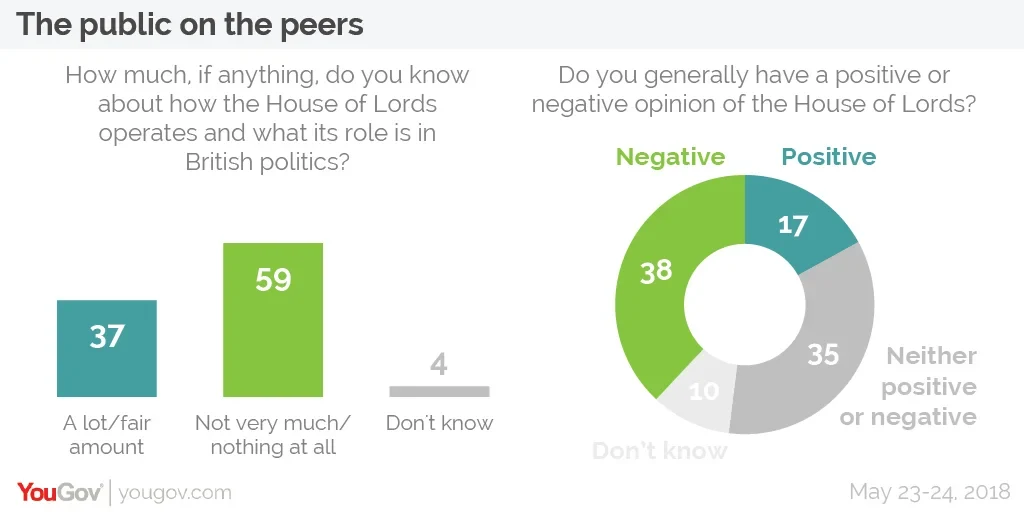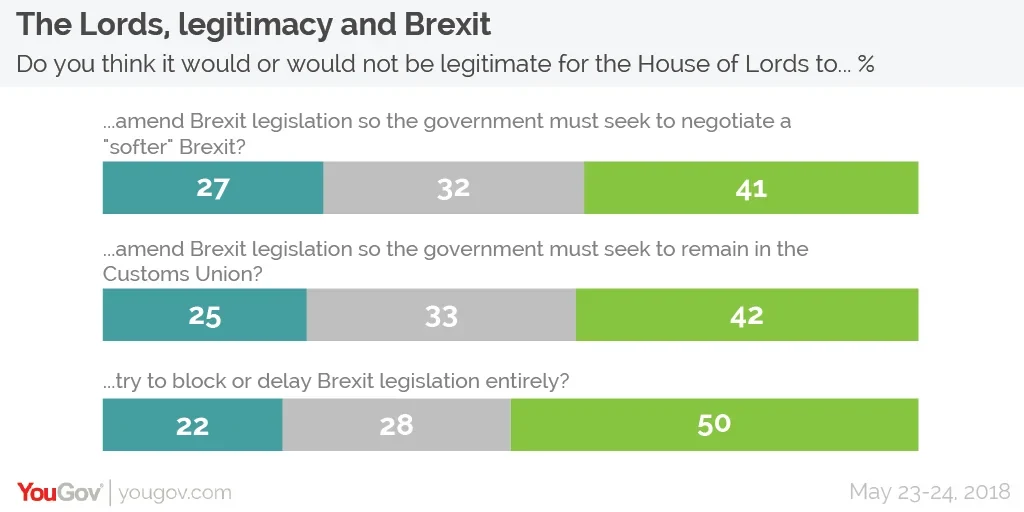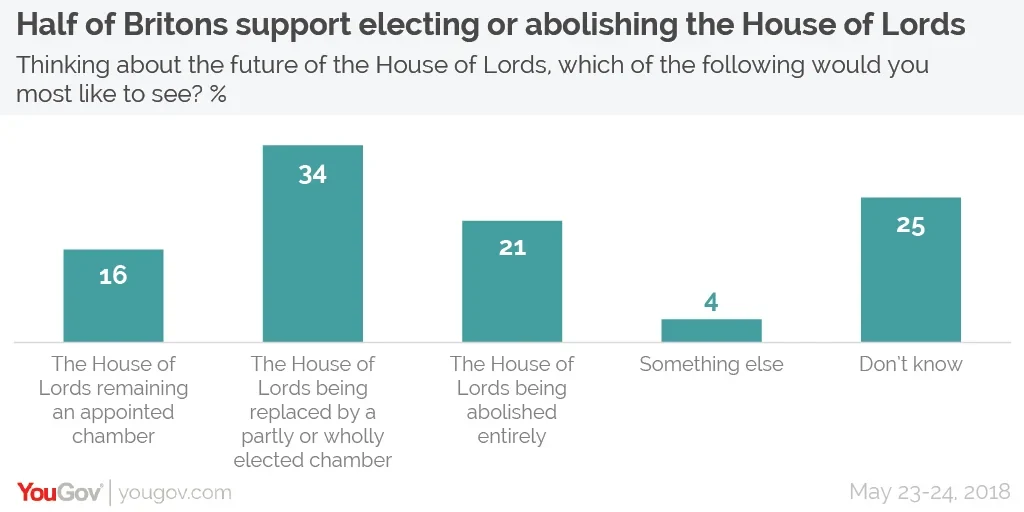The public are largely apathetic about the upper house, but what views they do have tend to be negative and they think it would be illegitimate for peers to try and force the government to soften its Brexit plans
In the wake of the problems faced by the Brexit bill in the Lords, some pro-Leave voices have been up in arms about the upper house. Also this week, Jeremy Corbyn confirmed that Labour support replacing it with an elected chamber. But what does the public think?
The idea that most people have objections to the Lords is wide of the mark. YouGov polling suggests the public simply don't have particularly strong views about the upper house - many don't know very much about it and a large number don't really care much what happens to it.
However, while a comfortable majority are pretty apathetic (almost six in ten people say they don't know much (44%) or anything (15%) about the second chamber), our research shows that the position that those with views take on the Lords tend to be negative. While 38% hold a negative view, just 17% are positive about the upper house. The remaining 45% either have a neutral opinion or no view at all.

While admirers of the Lords might speak of the expertise of its membership or its contribution to the detailled scrutiny of legislation, such views are not widely held by the public. Only 19% think that the upper house has higher standards of expertise and insight among its members than the Commons, only 22% think that the second chamber is better than the Commons at scrutinising legislation. Even if members of the Lords do make a valuable contribution on these grounds, they haven't sold it very well to the general public.
However, what is notable in the present political climate is that many attitudes towards the upper house split down Remain/Leave lines. Half (52%) of Leavers currently say they have a negative view of the second chamber compared to 26% of Remainers. By 49% to 32% Remain voters think the Lords plays a useful role in British politics, while by 60% to 21% Leave voters think it doesn't.
Opposition to Brexit from the upper house carries the risk of accusations of impropriety. Any attempt to block or delay Brexit legislation entirely would be seen as illegimate among all voters (by 50% to 22%).
The sort of amendments that the second chamber has passed during the course of the debates on the Withdrawal Bill also tend to be seen as improper. By 41% to 27% people think it would be illegitimate for the Lords to amend proposed laws to make the government seek a softer Brexit, and by 42% to 25% people think it would be illegitimate for them to amend proposed laws to make the goverment seek to stay in the Customs Union.
This isn't solely Leave voters either; even around a quarter of Remain voters think that it is improper for the upper house to amend the legislation in this way.

Currently, one in five (21%) people support the abolition of the second chamber, while one in three (34%) support its replacement by an elected house. Just one in six (16%) prefer it to remain in its present form.

Historically when we asked about House of Lords reform, Conservative voters and pensioners were most likely to support the retention of an appointed chamber. However, the impact of the Brexit fight means that, for now at least, much of this support has been lost.
Most of the public are not angry towards the upper house but neither does the Lords have much public support. Currently, the balance of public opinion is against it. If this stays the same, the biggest barrier to a future government wishing to abolish or reform the second chamber would probably be the legislative difficulties in doing so, rather than any opposition from the country.
Photo: Getty











